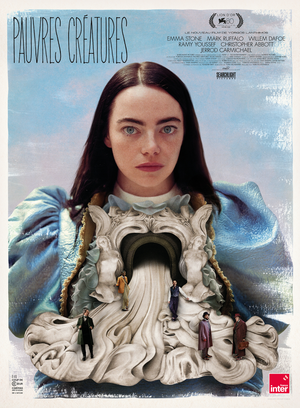I enjoyed watching Emma Stone's interpretation and execution of Bella Baxter. She had to seamlessly execute three separate yet inextricably linked characters: an innocent child that must learn how to interact with the world; a lustful, headstrong, and adventurous teenager; and an intellectual woman that must confront the realities of living in a man's world. The fluidity of time and age make her character all the more interesting. We never truly know how old Bella is nor at what stage of development she would be by traditional scientific measurements, hence her being an experiment rather than a naturally born and raised human being.
What keeps this film from reaching an 8 or 9, for me, is the underdevelopment of one key message. I think it did a good job treating questions of what it means to be human, what is the moral line separating life and death, etc (Willem Dafoe's acting and the compelling yet conflicting relationship between Bella and Dr. Godwin played a large part in this development, for me). However, I find it lacked a more thought-provoking critique of the woman condition. It felt a bit 2-dimensional--similar to how I felt watching Barbie. Perhaps not enough time was spent developing the relationships Bella had with women (Bella v Swiney, Bella v Toinette, Bella v Martha). All of these women's characters revolved heavily around sex. And in the end, all we got to reject that notion was Bella's return home and decision to become a scientist like her father. If the "poor creatures/things" are supposed to be women in our society, then I would suggest changing the ending of the film to something more powerful.

